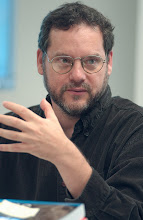Another Student Letter to the Editor on Health Care
Health Care Problems: A Curable Disease
To the Editor:
There is a new disease on the horizon threatening all of us called uninsurance. A recent study by the Cambridge Health Alliance conducted by Harvard researchers reported that 45,000 people in the United States will die each year due to lack of health insurance often from skyrocketing insurance premiums. The study, published in the American Journal of Public Health, states uninsured Americans have a 40% greater risk of dying than their privately insured counterparts--and the number is rising.
The point is this—even one death attributable to the unavailability of quality health care is unacceptable; yet people are dying because they can’t afford health insurance! Politicians say they understand the needs of “the American people”. Why aren’t they taking a united stand on behalf of the American people?
Here’s the good news--this is a curable disease, one of which our lawmakers are losing sight of while they waste valuable time and energy in partisan politics. This is not a time for divisiveness; but time for “we, the people” to join together to make our voices heard. Please, I encourage you to put pressure on Congress to support a health care reform bill with a public option today!
Karen Rose


